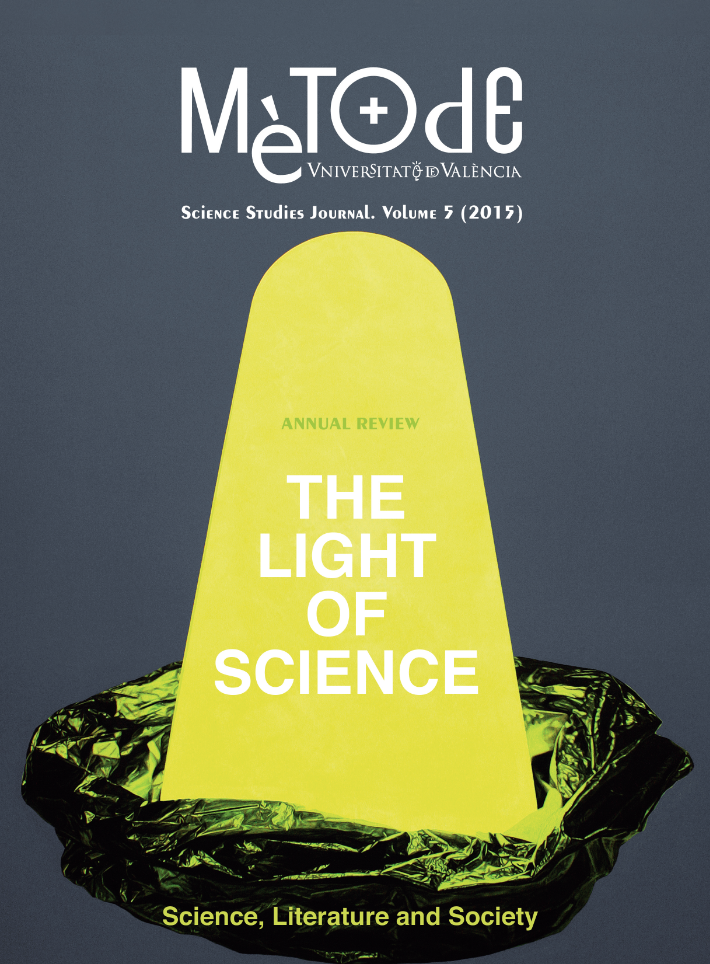Distributive Justice and Evolution. Towards a Science of Equality
DOI:
https://doi.org/10.7203/metode.0.4047Keywords:
debunking explanations, freedom, equality, fraternity, property Abstract
Abstract
The paper offers reasons why distributive justice scholars should be interested in evolutionary science: it can help us understand, for example, the genetic and subsistence factors influencing our judgements about fair distributions, where our sense of property may come from, why freedom matters to certain creatures, and why we have fraternal and egalitarian sentiments and unequal societies.
 Downloads
Downloads
 References
References
Boehm, C., 1999. Hierarchy in the Forest. The Evolution of Egalitarian Behavior. Harvard University Press. Cambridge, Massachusetts.
Bowles, S. and H. Gintis, 2011. A Cooperative Species. Princeton University Press. Princeton/Oxford.
Brosnan, S., 2011. «Property in Non Human Primates». New Directions for Child and Adolescent Development, 132: 9-22. DOI: <10.1002/cd.293>.
Cancian, F., 1966. «Maximization as Norm, Strategy and Theory. A Comment on Programmatic Statements in Economic Anthropology». American Anthropologist, 68: 465-470. DOI: <10.1525/aa.1966.68.2.02a00110>.
Casal, P., 2011. «Love Not War. On the Chemistry of Good and Evil». In Gosseries A. and Y. Vanderborght (eds.), 2011. Arguing About Justice. Essays for Philippe Van Parijs. Louvain University Press.
Louvain-la-Neuve. Cochrane, A., 2012. Animal Rights without Liberation. Columbia University Press. New York.
De Waal, F., 2009. The Age of Empathy. Harmony. New York.
Hauser, M., 2007. Moral Minds. Harper Collins. New York.
Henrich, J. et al., 2005. «“Economic Man” in Cross-cultural Perspective: Behavioral Experiments in 15 Small-scale Societies». Behavioural and Brain Sciences, 28: 795-855. DOI: <10.1017/S0140525X05000142>.
Henrich, J.; Boyd, R. and P. Richerson, 2012. «The Puzzle of Monogamous Marriage». Philosophical Transactions of the Royal Society B: Biological Science, 367: 657-669. DOI: <10.1098/rstb.2011.0290>.
Jensen, K.; Call, J. and M. Tomasello, 2007. «Chimpanzees Are Rational Maximisers in an Ultimatum Game». Science, 318: 107-109. DOI: <10.1126/science.1145850>.
Maynard-Smith, J. and G. A. Parker, 1976. «The Logic of Asymmetric Contests». Animal Behaviour, 24: 159-175. DOI: <10.1016/S0003-3472(76)80110-8>.
Milanovic, B., 2011. The Haves and the Have-Nots: A Brief and Idiosyncratic History of Global Inequality. Basic Books. New York.
Proctor, D. et al., 2013. «Chimpanzees Play the Ultimatum Game». PNAS, 110, 2070-2075. DOI: <10.1073/pnas.1220806110>.
Rousseau, J., 2002. The Social Contract and the First and Second Discourses. Yale University Press. New Haven.
Stake, J. A., 2004. «The Property “Instinct”». Philosophical Transactions of the Royal Society B: Biological Sciences, 359(1451): 1763-1774. DOI: <10.1098/rstb.2004.1551>.
Stewart, S. and A. G. Thomas, 2013. «The Ape That Thought It Was a Peacock. Does Evolutionary Psychology Exaggerate Human Sex Differences?». Psychological Inquiry, 24(3): 137-168. DOI: <10.1080/1047840X.2013.804899>.
Wallace, B.; Cesarini, D.; Lichtenstein, P. and M. Johannesson, 2007. «Heritability of Ultimatum Game Respondent Behaviour». PNAS, 104(40): 15631-15634. DOI: <10.1073/pnas.0706642104>.
Wilkinson, R. and K. Pickett, 2010. The Spirit Level. Why Equality is Better for Everyone. Penguin. London.
Zerjal, T. et al., 2003. «The Genetic Legacy of the Mongols». American Journal of Human Genetics, 72: 717-721. DOI: <10.1086/367774>.
Downloads
Published
How to Cite
-
Abstract1208
-
PDF (Català)329
-
PDF (Español)188
-
PDF192
Issue
Section
License
![]()
All the documents in the OJS platform are open access and property of their respective authors.
Authors publishing in the journal agree to the following terms:
- Authors keep the rights and guarantee Metode Science Studies Journal the right to be the first publication of the document, licensed under a Creative Commons Attribution-NonCommercial-NoDerivatives 4.0 International License that allows others to share the work with an acknowledgement of authorship and publication in the journal.
- Authors are allowed and encouraged to spread their work through electronic means using personal or institutional websites (institutional open archives, personal websites or professional and academic networks profiles) once the text has been published.





